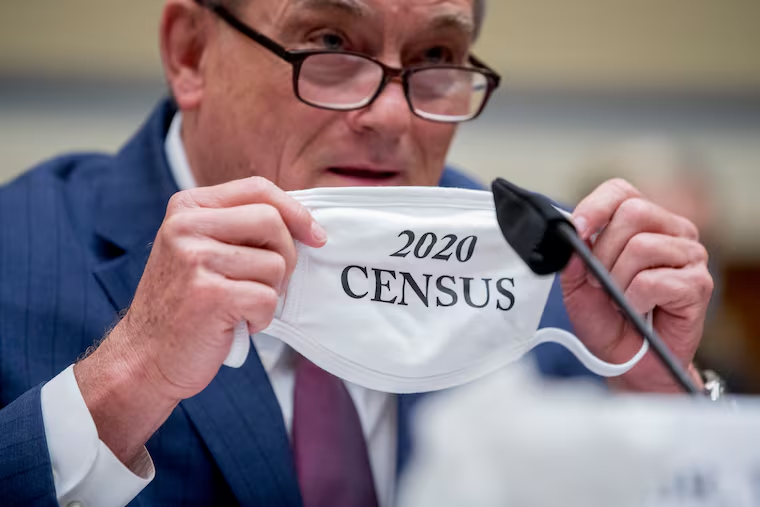2020 Census efforts are targeting Philadelphia area households that haven’t responded
Because funding for recovery from the pandemic will be tied to new census data, “this census is more important than any recent census," said an official with Philly Counts, an initiative to get everyone counted.

On Saturday, a caravan of cars and bikes will travel through North and West Philadelphia — specifically Strawberry Mansion, Mantua, and Belmont — playing music and encouraging participation in the 2020 Census in neighborhoods that the Census Bureau has historically undercounted and that are trailing in responses.
It’s part of a larger push to get Philadelphians and residents throughout the region to fill out the 2020 Census, which the federal government uses to count every person living in the country and to distribute hundreds of billions of dollars to state and local governments for services such as housing, health care, infrastructure, and schools.
Stephanie Reid, executive director of Philly Counts, the city’s initiative to make sure residents are counted, said that because funding for recovery from the pandemic will be tied to new census data, “this census is more important than any recent census.”
“We know we need every penny that the city deserves coming into the city for recovery,” Reid said.
Philly Counts and the Census Bureau had to scrap plans to encourage census participation at sporting events, festivals, and other large gatherings that have been canceled because of the pandemic. In addition to the socially distanced caravan of about 20 cars and some bikes taking to the streets from 11 a.m. to 1 p.m. Saturday, census workers have been standing outside grocery stores, pharmacies, coin laundries, and food distribution centers asking people to answer census questions.
City employees are hanging census information on 300,000 doors in 93 Philadelphia neighborhoods where response rates lag behind the national average. They have been giving out masks when they talk to residents about the census, and they plan to focus on parks and business corridors next. As of Tuesday, 51.6% of households in the city had responded to the census, below Pennsylvania’s 65.8% self-response rate and New Jersey’s 64.6% rate.
For the first time, the Census Bureau also is emailing millions of people in areas with low response rates to encourage them to fill out the census, using the email address 2020census@subscriptions.census.gov. The bureau also will mail additional paper questionnaires in areas where response rates are low. Households have until Oct. 31 to respond to the census.
“We continue to look for all the options, all the different alternatives that are available to reach out to people to remind them there is still time,” said Fernando Armstrong, director of the Census Bureau’s Philadelphia Regional Office.
» READ MORE: Possible positive coronavirus side effect? More people may fill out the 2020 Census online.
Next month, Census Bureau workers will start to visit households in the region that haven’t yet filled out census forms online, by phone, or by mail. Workers will be equipped with smartphones to record responses and masks as a pandemic precaution.
“Spending the five or 10 minutes to do the census online or over the phone means someone won’t need to come to your door during the coronavirus pandemic,” U.S. Rep. Dwight Evans (D., Pa.), who came up with the idea of the census caravan and will join Census Bureau employees and local and state elected officials Saturday, said in a statement.
» READ MORE: Here's some info you need to know about the 2020 Census
Armstrong said the design of the 2020 Census, which encourages online response and uses smartphones and tablets to record in-person responses, has made counting the population during a pandemic possible.
“If the design had been the same as we did in 2010 or in 2000, it would be a very, very scary outcome,” he said. “Considering that everyone, every single area, every single city and neighborhood is challenged by the COVID-19 pandemic and everything else that comes with it, I think we are doing well.”
Overall census response rates are higher than what the Census Bureau expected, he said.